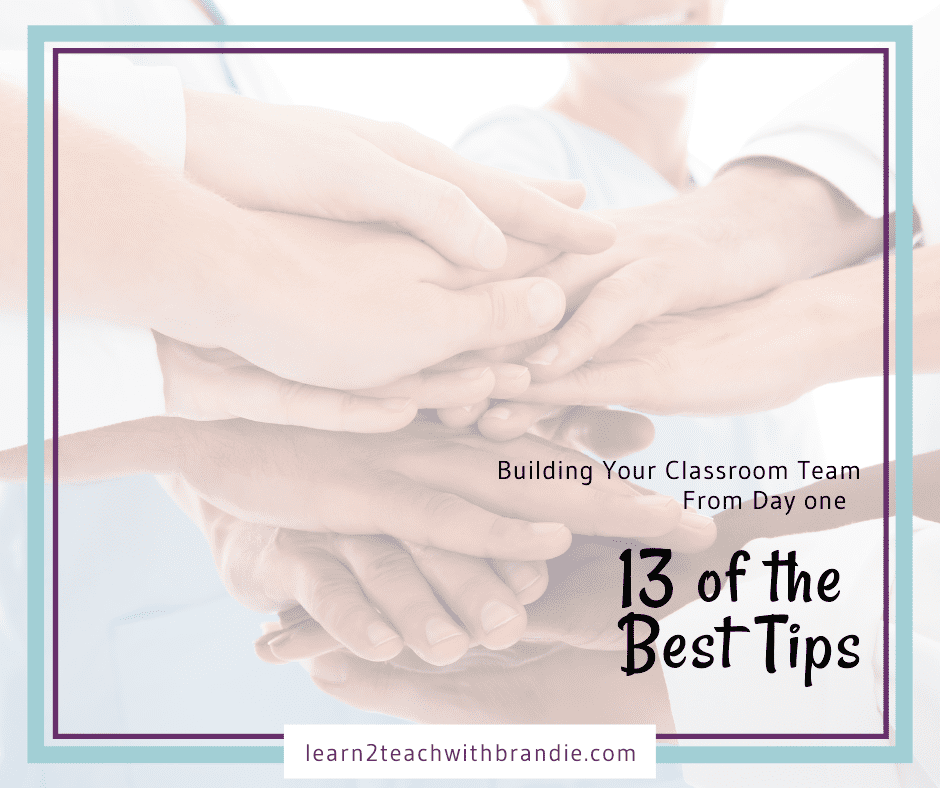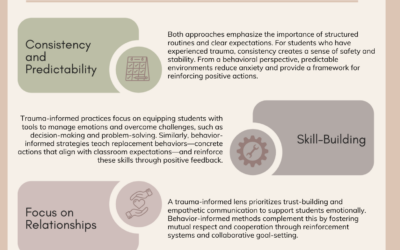New teachers (and not so new teachers) report that working with the other adults in their classroom can be one of the most stressful parts of their jobs. As a teacher, you are creating a “family” in your classroom and the way you work with that “family” in your classroom team can make the difference between a “happy and healthy” family and a “drama-filled, dysfunctional” family. Navigating individual personalities, communication styles, and needs can be daunting.
Here are thirteen tips to start things right with your classroom team from day one!
1. Have a clear plan for how you want your classroom to run.
There is nothing that can cause a rough start to the school year more than the lack of a vision/plan for how you want your classroom to run. When you have other adults in the classroom, they need to know what you are hoping for in your classroom from day one so they can be a part of the process of creating the vision and implementing the plan.
2. Have clear expectations for everyone’s role in the classroom team.
Once people in your classroom team know what is expected of them, the majority of the time, they will live up to those expectations. Most problems come when what you want from people is unclear. Even though expectations may (and are likely) to change, starting off with clarity is critical for building a healthy relationship.
3. Remember that everyone you are dealing with is an adult and deserves respect.
Treating people with respect may seem like a simple suggestion, but without mutual respect, things can go downhill fast. Remember- you don’t have to “like” each other to be respectful of each other.
4. Differences in opinion are okay- it’s how you work through the differences that matter.
You and your team will not always agree and that’s okay! (sometimes this is where the best ideas come from). Setting up a clear procedure for disagreeing is a huge help. (ex: Is there a certain time of the day you want to discuss disagreements? Do you want it in writing or verbally?)
5. Each year should be a fresh start.
Even if you have worked with each other before, each year is a fresh start. What didn’t work the year before can change and what worked can be improved to work even better!
6. As a teacher- you are the leader of the classroom team. Be the leader you would want.
You know what it feels like to be led by someone who doesn’t value you or doesn’t treat you well. Make sure you aren’t that person to someone else!
7. Putting things in writing helps clarity for everyone
Oftentimes we assume people “just know” what we want or what they should be doing. Putting things in writing assures that there is no confusion and allows for a reference for both you and your staff.
8. Remember- everyone wants to hear good things from time to time.
In the craziness of the first weeks of school, don’t forget to tell your staff how much you appreciate them and it never hurts to “catch them” being rockstars! A few positive words can go a long way.
9. Set a weekly classroom team meeting
I know how busy you are! I swear I am not trying to just add another thing to add to your “to-do” list. Setting up a weekly meeting means that everyone in the room knows that at least once a week they will have the opportunity to ask questions, share ideas, or discuss concerns. With that meeting safely set on the calendar, everyone in the room knows that their voices will be heard and they can focus their energy on supporting kids!
10. Have a question box/ board where staff can write their questions to be reviewed at the weekly meeting
I have seen this make all the difference in a class for students with severe and complicated needs. The days were chaotic because all day staff was stopping what they were doing to ask questions. Once this system was implemented and they knew their question would be answered, the attitude in the classroom shifted and the students thrived!
11. Model respect so that the students see that all staff in the classroom deserve the level of respect.
Students imitate the respect that they see. If they see you talking down to staff or not respecting their opinions, they will treat staff the same way.
12. Boundaries are important
This is always a tricky subject. If you move the relationships to a more personal level with the staff in your classroom, you risk having a very complicated class environment.
The ideal is to have a positive, professional, working relationship with everyone in your classroom. If relationships move past that, be aware that you may be setting things up to be more complicated than you hoped they’d be.

13. Sometimes (doughnuts, bagels, and cookies) are just what the “family” needs!
This is pretty simple…. As my grandma always said, “nothing can’t be fixed with just a little something sweet.” 🙂





